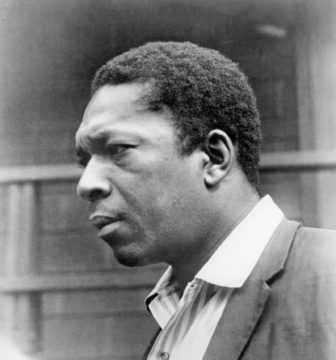
Adam Shatz in the NY Review of Books:
At a press conference in Tokyo in July 1966, a Japanese jazz critic asked John Coltrane what he would like to be in ten years. “I would like to be a saint,” he replied. Coltrane, who died the following July of liver cancer, at forty, reportedly laughed when he said this; but among his followers, he was already considered a spiritual leader, even a prophet. His reputation rested not merely on his musicianship, but on the example he set, the self-renunciation and good works required of every saint. Unlike the alto saxophonist Charlie Parker, who launched the bebop revolution with the trumpeter Dizzy Gillespie, Coltrane was not a fully formed virtuoso when he first emerged, but rather a committed and tireless student of the horn—a hardworking man who arrived at his sound through a practice regime of almost excruciating discipline. “He practiced like a man with no talent,” his friend the tenor saxophonist Benny Golson remembered. The saxophonist Archie Shepp, one of Coltrane’s many protégés, exaggerated only slightly when he remarked that he never saw him take the sax from his mouth. The trumpeter Miles Davis, in whose mid-Fifties quintet Coltrane first rose to prominence, made the same observation, though more in exasperation than worship.
Early in his career, Coltrane had succumbed to the temptations of the jazz life, but by 1957 he had kicked the habits of both needle and bottle, devoting himself to his music, and to God. The religion he embraced was ecumenical: an eclectic mixture of Christianity, Hinduism, Buddhism, and Sufi Islam—“I believe in all religions,” he said. Self-effacing and humble, he paid generous tribute to his influences—Lester Young, Ben Webster, Dexter Gordon, Sonny Rollins, John Gilmore—and helped younger musicians land contracts with his own label, Impulse Records. Coltrane, whose command of the tenor was unmatched (except, perhaps, by Rollins), even took lessons with free jazz artists like Ornette Coleman and Albert Ayler, whom other musicians of his stature derided as charlatans, adapting their innovations to his purposes. In his lifestyle, Coltrane stood apart for his indifference to the scene.
More here.
